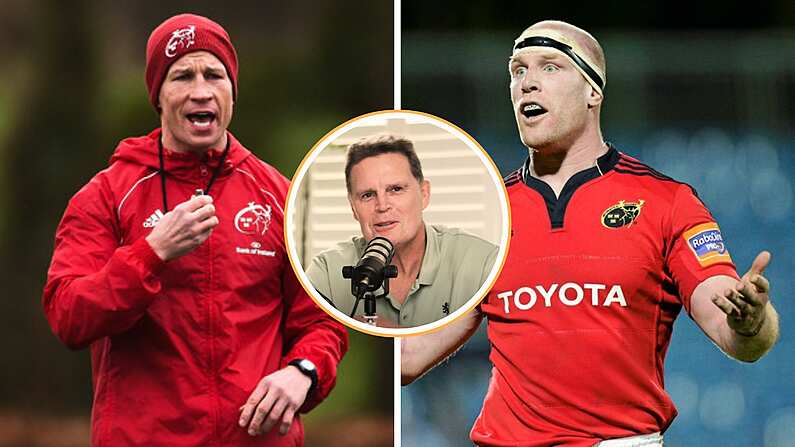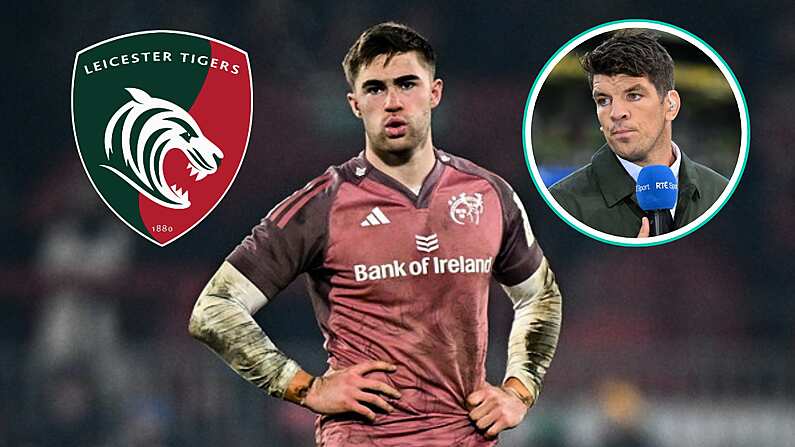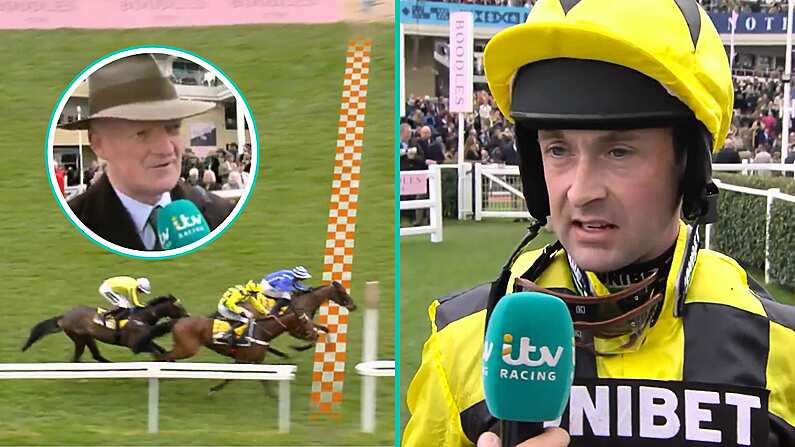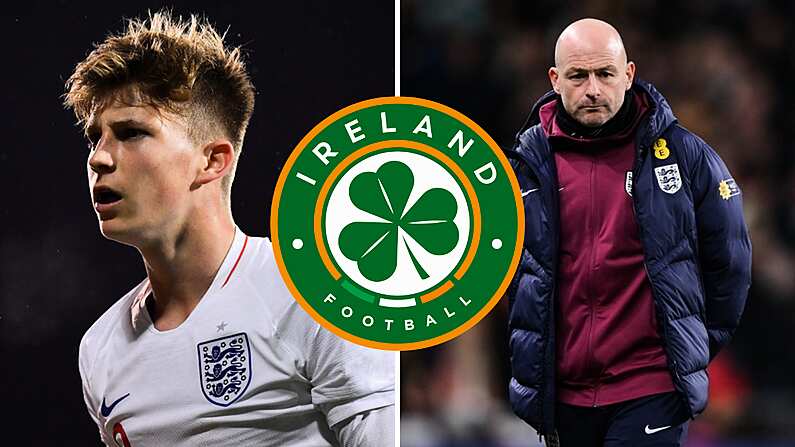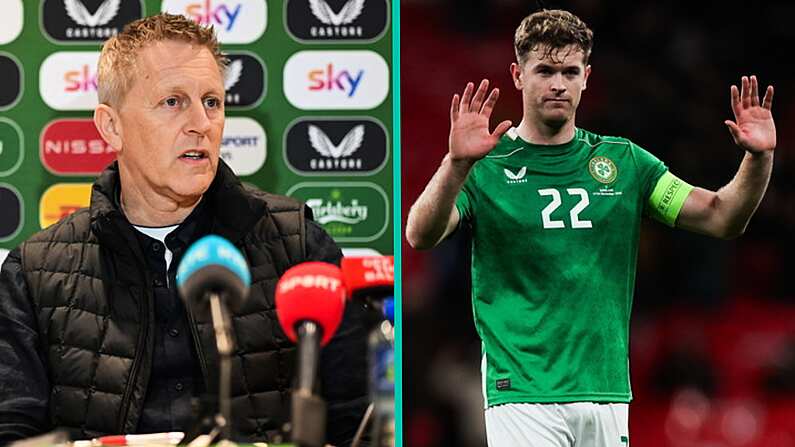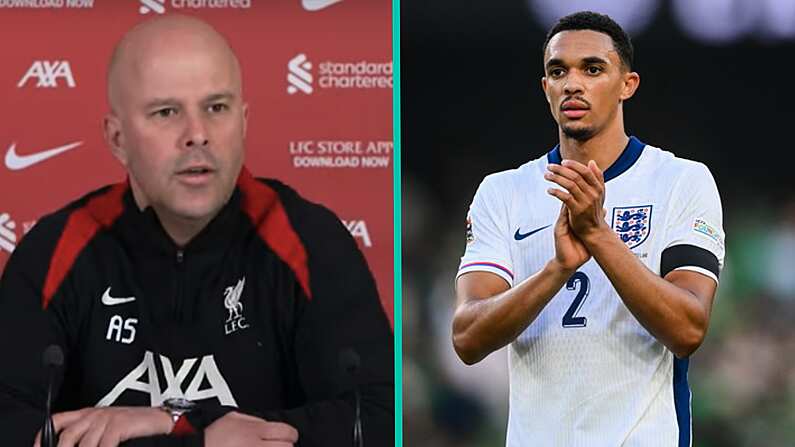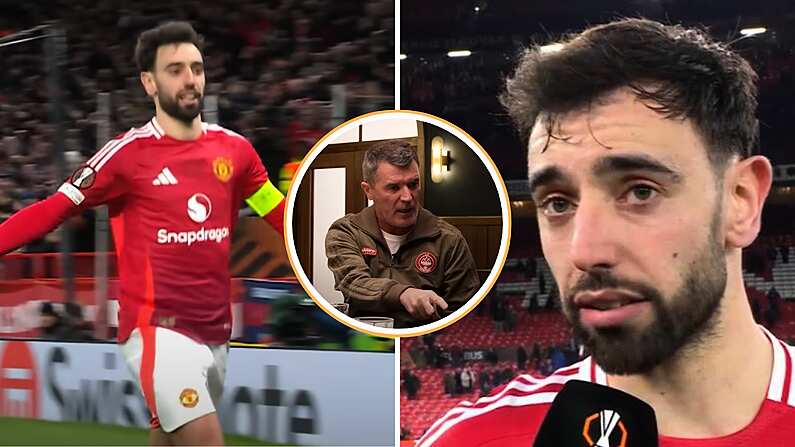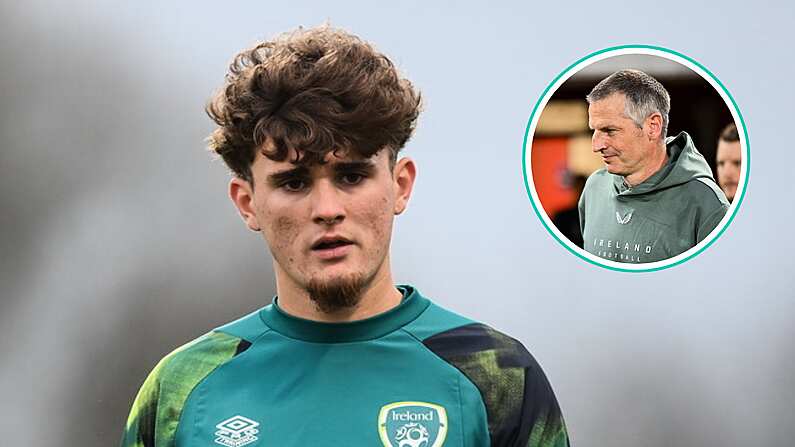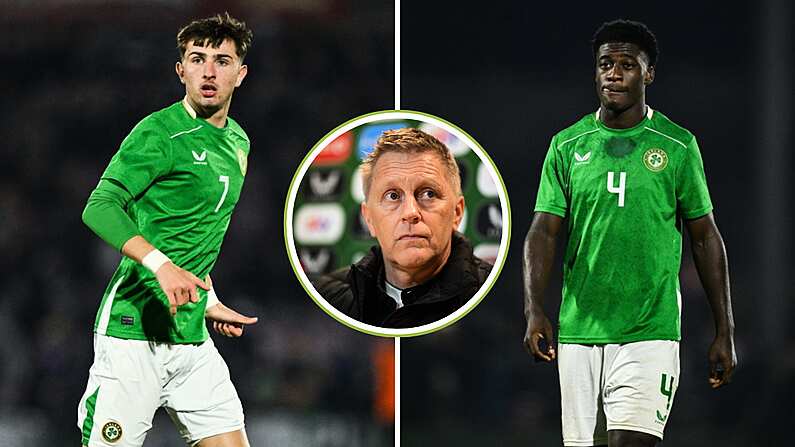Iker Casillas shrugged, spitting awed helplessness beneath his breath.
Guti staggered away bedraggled, while Ivan Helguera gazed downward, ashen-faced.
The TV camera then panned to the object of their exasperation, mobbed by his teammates. The next shot, however, was the important one. The camera panned across the stands in the Bernabeu, where Madrid fans rose one-by-one from their seats. Some retained a look of solemn duty, others stood wide-eyed in admiration. All applauded the astonishing genius of Ronaldinho.
For Ronaldinho had just scored his second goal of a resounding 3-0 El Clasico win. It began with him picking up the ball inside on the left-wing, before advancing toward Sergio Ramos.
Ramos decided to stand up tall, biding his time before attempting a tackle, firmly refusing to be fooled into going to ground. Ronaldinho took one withering glance to survey whatever futile course of decision-making the defender pursued, before gliding past him. Past experience taught Ivan Helguera to stay in position in the centre of his own penalty area as Ronaldinho hurtled towards him. No matter. Ronaldinho skated further forward and bisected the angle between Casillas and the outer post.
The bewildered air in the Bernabeu was partly as a result of what had preceded this latest flash of Ronaldinho's exquisite torture. Earlier in the game, he had picked the ball up in the same position.While the result was the same, the intervening acts were entirely opposite.
Again he was met with Ramos, where he indulged in some misdirection. He pushed the ball slightly ahead of him, tantalising Ramos. Seduced, Ramos swooned.
The defender lunged in, but by the time he reached the ground, Ronaldinho had snapped the ball away and disappeared. He cut inside and was met front-on by Helguera. In the time Ronaldinho dropped his shoulder to feint left, accelerated right and shot, Helguera had pulled the studs of his right boot out of the turf.
In two moves, Ronaldinho executed a rigorous destruction of Real Madrid in the biggest game on the planet. What could Madrid do, but recognise their inferiority to this ethereal football spirit?
This is how Ronaldinho became only the second Barcelona player to be afforded an ovation by Real Madrid supporters.
****
The first man to achieve such a feat was Diego Maradona. The date was June 26th, 1983, and Maradona decided to twist the knife into Real Madrid with some gratuitous decoration:
After his ovation in 2005, Ronaldinho spoke to FourFourTwo:
I am very proud. When it happened, I barely noticed what was happening. I just scored and celebrated.
As far as I know, only Maradona got that, too, in Madrid. I was twice as happy to know my hero in football was the last to have that honour at the Bernabeu.
I've talked to Maradona about that moment and shared notes. It's a great memory.
The similarities between Ronaldinho and Maradona are obvious. Paragons of the audacity that European football, for all its strengths, just can't teach, both enchanted the world with their national teams and Barcelona, becoming global superstars far removed from deprived beginnings.
They share another lamentable characteristic: for their awesome talent, much of it went unfulfilled.
****
The 2005/06 season was the last in which we saw Ronaldinho at his peak. A month after the Bernabeu ovation, he stood on a podium as a 25-year-old accepting the FIFA World Player of the Year award for a second year in a row. Barcelona would win the European Cup six months later, and then Ronaldinho would be the central player at the World Cup, as Brazil sought to defend their title. Yet it somehow went horribly awry. He did not score at the World Cup, and went on to make just 75 further appearances for Barca.
Absurdly, his career drifted away. Jettisoned by Pep Guardiola at Barcelona, he joined AC Milan, where performances and fitness levels deteriorated with every passing week of a three-season spell, bar a brief period of rejuvenation in the middle. A peripatetic existence in South America followed, with spells at Flamengo, Atletico Mineiro, Queretaro and finally Fluminense that proved that, for all of his outlandish talent, the one thing Ronaldinho could not pass was a party.
****
Like Ronaldinho, Maradona left Barcelona for Serie A. Unlike Ronaldinho, Maradona's time with Napoli was about as intense a footballing experience as anyone has ever experienced. Upon his arrival in 1984, Maradona was greeted by 75,000 fans at his official unveiling. While the fans stopped short at laying palms at his feet, Maradona was met by a kind of mad religious fervour.
One local newspaper remarked that despite the city being devoid of a "mayor, houses, schools, buses, employment and sanitation, none of this matters because we have Maradona". Two Serie A titles and a UEFA Cup followed. While at Napoli, Maradona touched the face of God by means both foul and fantastic at the 1986 World Cup.
Soon, however, it became too much. Football, once Maradona's tool for escape, became oppressive. He was consistently dogged by personal scandal in the South of Italy. He was accused of having some shady links with the local mafia, there was a story concerning the fathering of an illegitimate son, and began abusing cocaine.
Eventually, Maradona's world collapsed: in 1990 FIFA hit him with a 15-month ban for testing positive for cocaine. He never played for Napoli again, and would collect merely 11 further caps for Argentina.
The arc of Maradona's plight can be viewed through the prism of El Grafico magazine.
El Grafico is a monthly Argentine sports magazine, founded in 1919. It is among the most authoritative sports magazines in South America, and it has played an important role in mythologizing Maradona.
The Argentina that Maradona grew up in had a terrible international reputation, with the 'Dirty War' (a period of organised state terrorism during which right-wing security forces targeted and killed left-wing dissidents) in full swing. El Grafico used a teenage Maradona to boost the nation's image, giving him a diary to keep during a tour of Britain and Ireland in 1980. The magazine ran stories of Maradona's fear of being injured by brutish Irish opponents, and reproduced a segment from The Sunday Times report praising Maradona's ball control.
El Grafico helped make Maradona a national hero as a teenager. (He has appeared on the front cover of the magazine a record 134 times, with Daniel Passarella a distant second with 58 appearances).
As a result, Maradona grew up in the public eye. His friend and World Cup-winning teammate Sergio Batista recognised this. After Maradona was arrested in Buenos Aires for cocaine abuse, Batista remarked that "he lost his youth. He didn't have a youth".
El Grafico reported that police had found Maradona naked in bed with a friend upon the day he was arrested. They were wrong: he was found alone in his underwear, curled up in the foetal position.
****
Maradona and Ronaldinho diverge at the unwinding of their careers. Whereas Maradona never had a youth, that is all Ronaldinho has ever had.
As highlighted by South American football writer Tim Vickery, one of the main influences in Ronaldinho's life and career has been his elder brother, Assis. Their father died in a swimming pool accident when Ronaldinho was just eight, meaning Assis helped fill the paternal void.
Assis became his agent and manager, pleading with scouts and local football clubs to give his younger brother an opportunity. Upon accepting his FIFA award in 2005, Ronaldinho thanked his brother:
He's my idol. He's been through a lot and has helped me every step of the way. He has encouraged me never to stop trying.
Vickery makes an astute observation regarding the nature of their relationship:
A son should eventually outgrow and replace his father. What appears to have happened with Ronaldinho is that the younger brother may always be the junior partner.
It seems Ronaldinho could never grow up, and his penchant for partying eventually led him astray.
His reputation as a party animal followed him around for the entirety of his career in Europe: early on in his PSG career, he was spotted in the early hours of a weekday morning bongos on stage at the Club Bikini while wearing a giant mask. The 2002 World Cup helped seal a move away from Paris, and despite strong interest from Manchester United, he joined Barcelona following their failure to sign David Beckham.
Ronaldinho settled under Frank Rijkaard, whom he credits as the best coach he has worked with, and for three glorious seasons, Ronaldinho's childlike enthusiasm fused with his extraordinary footballing talent. After the 2006 World Cup, however, Ronaldinho began to lose interest.
That enthusiasm for football began to seep away, and was replaced by an increasingly poor attitude, with Ronaldinho becoming increasingly preoccupied with late nights. In 2008, on the eve of the second leg of Barcelona's Champions League semi-final tie with Manchester United, Ronaldinho (destined to miss the match through injury) went out with friends instead of focusing on recovery for a potential final in May, indulging in a pub and club crawl that ended well after 5am.
He gained weight, frequently skipped training and was eventually banished by Pep Guardiola for being a poor influence on Leo Messi. Ronaldinho maintains he was a good influence upon Messi, claiming he helped him settle in a strange country.
This may well be true, but his methods of doing so were fraternal, rather than paternal. Ronaldinho and the other Brazilian players at the club (Deco, Sylvinho, and Thiago Motta) would reserve a seat for Messi at their table at the club's canteen and frequently invite Messi out for meals, chiding him for his Argentinian roots.
Guardiola ultimately deemed Ronaldinho to be a bad influence upon Messi and sold him to Milan. Guardiola handed his No.10 jersey to Messi, who won four Ballon D'Or's in a row as Ronaldinho's career drifted to a sad obscurity.
When it became clear that things would not work out at Milan, Carlo Ancelotti - then at Chelsea - remarked that "I am not surprised by the decline of Ronaldinho. I saw it coming, his physical condition has always been precarious, while nobody could doubt his talent".
Ronaldinho simply could not concentrate his talents on football. On the occasions in which he did, accolades and trophies tumbled forth: most notably the Copa Libertadores triumph with Atletico Mineiro in 2013 that led to a brief recall for the Brazilian national team. Ronaldinho earned his 100th cap, but failed to make the Confederations Cup squad of that summer.
He moved to Queretaro in Mexico for a season in 2014, before returning to Brazil with Fluminense, with whom he signed an 18-month contract. He lasted just two months, announcing that he was retiring from football, making official a decision he made nine years previous.
****
In 1992, Hugh McIlvanney wrote a lament of the great career of another of football's troubled geniuses, George Best. It is entitled The Best Year of Our Lives, as McIlvanney recalled the absurd qualities of Best with a tinge of regret that his like will never be seen again. In the midst of such elegiac fatalism, this sentence stood out:
Sport at its finest is often poignant, if only because it is almost a caricature of the ephemerality of human achievements.
This is a line that probes to the heart of the deep paradox of Ronaldinho's career. Watching him indulge in his gratuitous tricks in the flaming heart of an instant awoke in us all an unsullied, childish joy.
Ronaldinho was applauded in the Bernabeu as, in those fleeting moments, he awoke a deeper majesty within everyone present, stripped of the partisan trappings that such local rivalry is beset by. Ronaldinho himself is easily caricatured, with his protruding teeth and wild hair, but for a fleeting moment at the Bernabeu, he captured exactly what McIlvanney describes.
In essence, he made each person present feel like a child.
What a pity then, that he couldn't help feeling like one himself.


